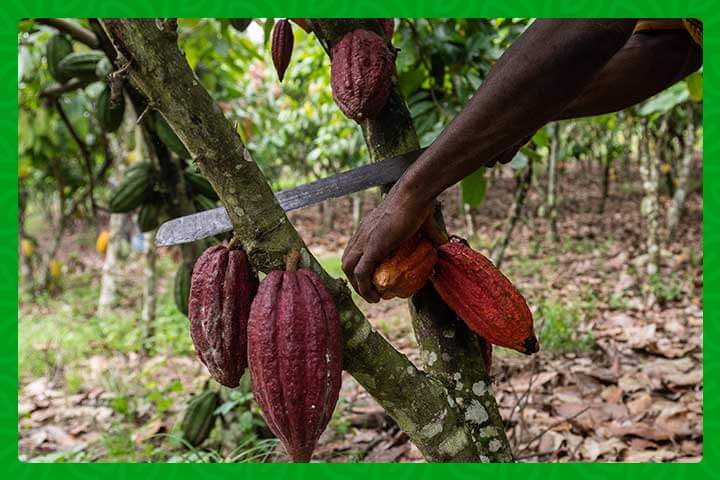
When a child in a cocoa village goes to school instead of the farm, an entire community feels the difference. That simple change ripples out to healthier families, stronger local markets and a cocoa supply chain that can stand on its own. Ferrero, the Italian confectionery group, is betting on that ripple effect with a long term initiative in Côte d Ivoire designed to safeguard children and adolescents in cocoa farming areas and to tackle the deep roots of child labour.
The new programme builds on a pilot that began in 2017, when Ferrero first teamed up with Save the Children. That early work proved something important: targeted, well funded interventions can protect children while strengthening family livelihoods. Now Ferrero is expanding the effort, joining forces again with Save the Children and bringing the Italian Agency for Development Cooperation into the mix. Co financed by Ferrero and supported through a competitive selection process managed by AICS, the initiative will run through 2030 and aims to deliver measurable, lasting change.
This is not a narrow or symbolic project. It is a broad effort to strengthen child protection systems and to promote children s rights across cocoa producing areas. Planned interventions include improving access to schools and healthcare, enhancing civil registration to ensure children are officially recognized and eligible for services, supporting women led enterprises that raise household incomes, and promoting alternative livelihoods for families who currently depend almost entirely on cocoa.
Those measures matter because the drivers of child labour are economic as much as they are cultural. When families do not have reliable income or access to basic services, children are pulled into work to help the household survive. By attacking those root causes the programme aims to reduce the risks children face while creating practical options for parents.
Working across the whole value chain
Isabel Hochgesand, Ferrero s global chief procurement officer, framed the initiative as a value chain effort. By working with Save the Children and Italian Cooperation, Ferrero says it wants to build a transparent, inclusive and lasting supply chain that benefits both communities and business. That means interventions at the farm level and beyond, from training on safer farming practices to investments that increase household resilience.
Save the Children Italy s CEO Daniela Fatarella emphasized the need for long term alliances. True change is not the result of isolated actions, she said. Transformative progress requires sustained collaboration among companies, governments and civil society. The new Ferrero led initiative embodies that sentiment by combining corporate resources, nonprofit expertise and public funding.
Côte d Ivoire and neighbouring Ghana produce around 60 percent of the world s cocoa. Despite the importance of these countries to the global chocolate market, an estimated 1.5 million children are still involved in the sector across both nations. The US Department of Labor has listed cocoa from the two countries since 2009 as being produced with child or forced labour. Progress has been slow and uneven, and pledges by industry players have not always translated into deep, structural shifts on the ground.
That context explains the urgency of initiatives like this one. Ferrero s commitment through 2030 signals recognition that short term fixes will not solve problems embedded in poverty, limited services and weak local institutions. A multi year effort gives partners the time to test approaches, learn, adapt and scale what works.
Community centered and women focused
A distinctive element of the programme is its focus on women led enterprises and on services that help families stay afloat without resorting to child labour. When mothers and women run successful micro businesses, household incomes rise and children have a better chance to stay in school. Strengthening civil registration similarly unlocks benefits for children, from schooling to health care, that protect them from exploitation.
For this initiative to matter, it must be accountable. That means clear indicators for reduced child labour, increased school attendance, stronger local child protection systems and better access to health and social services. It also means transparency about budgets, timelines and the roles of each partner. The pilot programme offered lessons on what works and what needs improvement. This expanded effort must build on that evidence and show, in concrete terms, how lives are changing.
A chance to shift the industry
Ferrero s decision to scale a long term child protection initiative matters beyond one company. It offers an example of how private sector actors can bring resources and market incentives to problems that require social solutions. If other industry players match the commitment with deep investments and partnerships that place children at the center, the cumulative effect could be transformative for cocoa producing communities across West Africa.
At its heart this initiative is about children and the choices they can make when families are supported. It is about classrooms filled with students rather than fields filled with unpaid child labour. Ferrero s partnership with Save the Children and Italian Cooperation is a promise to work patiently at the roots of a complex problem. Delivering on that promise will require time, money and coordination, but the reward is clear: safer childhoods, stronger communities and a cocoa industry that works for the people who make it possible.


















